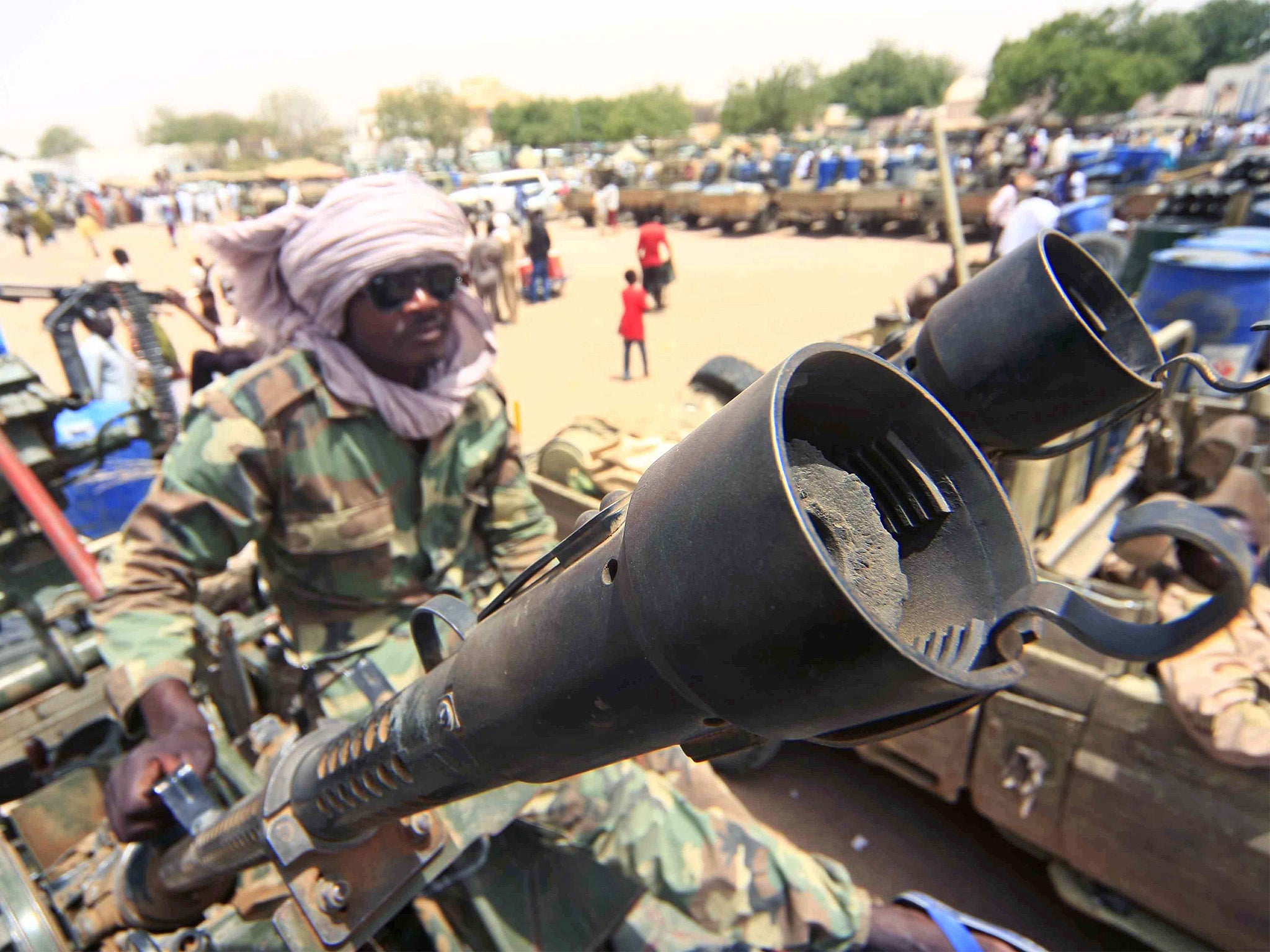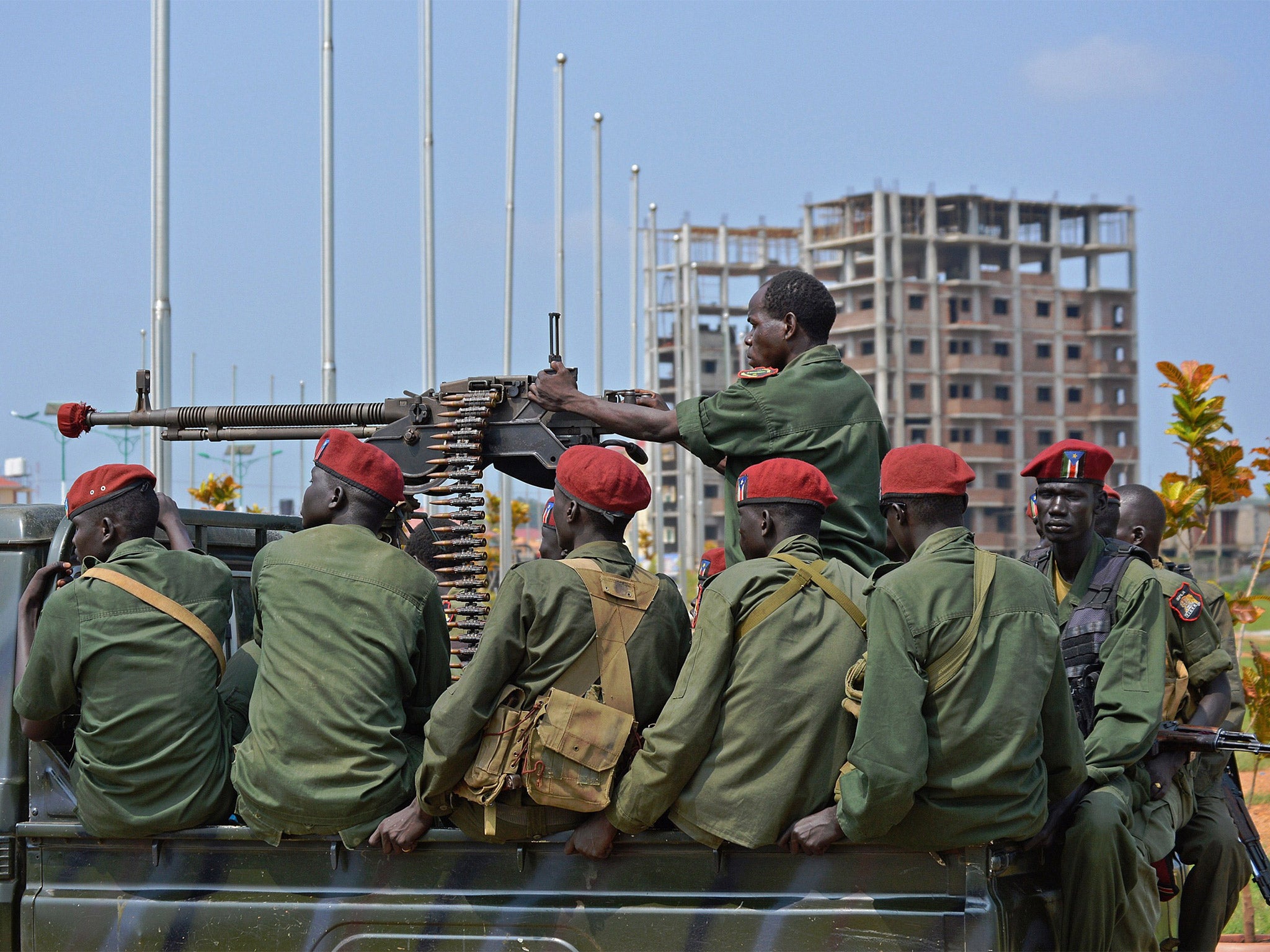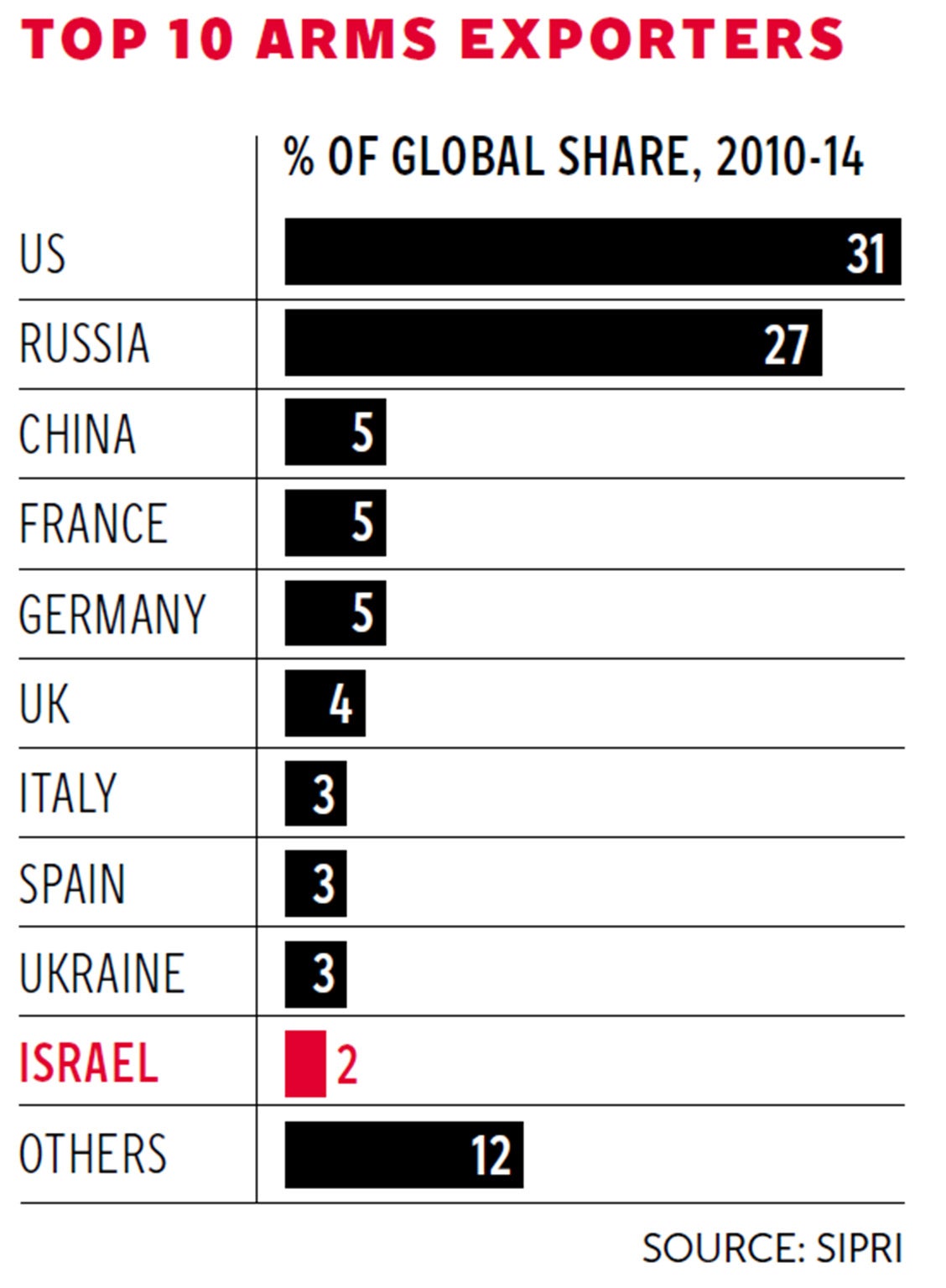Israeli arms exports under scrutiny amid claims they are 'helping to fuel conflict in South Sudan' despite EU embargo
Lawyer seeks to break through secrecy to expose how sales of weapons are 'prolonging' conflicts around the world, making the country indirectly responsible for war crimes

Your support helps us to tell the story
From reproductive rights to climate change to Big Tech, The Independent is on the ground when the story is developing. Whether it's investigating the financials of Elon Musk's pro-Trump PAC or producing our latest documentary, 'The A Word', which shines a light on the American women fighting for reproductive rights, we know how important it is to parse out the facts from the messaging.
At such a critical moment in US history, we need reporters on the ground. Your donation allows us to keep sending journalists to speak to both sides of the story.
The Independent is trusted by Americans across the entire political spectrum. And unlike many other quality news outlets, we choose not to lock Americans out of our reporting and analysis with paywalls. We believe quality journalism should be available to everyone, paid for by those who can afford it.
Your support makes all the difference.For years there have been persistent reports of Israel selling arms to regimes with records of egregious human rights abuses without the issue being discussed or questioned at home. But that is changing.
Eitay Mack, a young lawyer, is trying to break through the wall of secrecy around Israeli weapons exports and is pressing for an end to the arms and know-how transfers that are currently helping to fuel South Sudan’s civil war and other conflicts. He claims Israel is “prolonging” the conflict in South Sudan which, according to estimates, has claimed tens of thousands of lives.
Mr Mack believes his is a life-saving mission and he does it on a voluntary basis although it often takes up most of his time. “I want to do all I can to stop war crimes and crimes against humanity for the sake of the citizens in South Sudan,” he tells The Independent in his modest office in west Jerusalem, adorned with the iconic photo of a protester facing a column of tanks in Tiananmen Square. “I am a citizen of the world and I have global responsibility.”
In December the European Union imposed an embargo on weapons sales to South Sudan after that country’s civil war resulted the displacement of nearly two million people. Washington, for its part, has halted all military assistance to the South Sudanese government.

But Israel, according to what Mr Mack describes as information from press reports, aid workers he has personally interviewed and other sources he says he cannot divulge, is providing Galil and Tavor rifles to the government forces and is training them in internal security techniques.
Mr Mack says Israel hosted a senior South Sudanese delegation at a weapons fair in Tel Aviv in June when the European embargo was in force. The United Nations South Sudan mission said Anthony Lino Makana, the South Sudan transport minister, had been expected to lead the delegation to the weapons fair, amid protests outside.
At the same time as the guests were apparently being welcomed in Israel, South Sudanese forces and their allies in South Sudan’s Unity State were winding up an offensive in which they burned entire villages to the ground and carried out scores of killings and rapes, causing forced displacement, according to Human Rights Watch. “Israel is prolonging the fighting in South Sudan,” Mr Mack says.

Defence ministry spokesman Yaacov Havakook declined to respond to a query about whether Israel equips South Sudan. When asked to respond to Mr Mack’s claims and to explain Israel’s relationship with South Sudan, Mr Havakook, said: “Our policy is that we don’t respond on matters of sales of weapons. We don’t refer to specific countries.”
In Mr Mack’s view the Jewish state’s continued weapons provision is helping to perpetuate an illusion on the part of South Sudanese president Salva Kiir Mayardit and other leaders that they will be able to break the military deadlock and win the war, thus inclining them to shun a diplomatic solution.
Joining forces with liberal Israeli politician Tamar Zandberg, Mr Mack demanded that the defence ministry cut off all Israeli military aid to South Sudan. He helped to organise several small street demonstrations.
Mr Mack also has his sights set on what he says is Israel’s selling and/or provision of military expertise to Eritrea, Azerbaijan, Burkina Faso, Equatorial Guinea, Angola, Cameroon, Gabon and Chad among others.
Mr Havakook, the defence ministry spokesman, declined to comment on a query from The Independent on whether Israel is equipping these countries, or to respond to criticism that it is abetting human rights violations.
“They don’t want a public discussion, what is most threatening to them is that the public will start to intervene in what they are doing,” Mr Mack says.
He believes Israeli officials may be culpable for war crimes and crimes against humanity by approving alleged past weapons transfers. In his view, holding officials responsible for past alleged crimes is paramount to ensuring that future abuses do not occur.
He and Yair Oron, an Israeli academic, are currently fighting a court battle to obtain the release of all documentation related to what Mr Mack is certain was weapons provision to Rwanda during the genocide from April-July 1994 and to the Serbs in Bosnia from 1991 to 1995.
The defence ministry responded to his action by specifying that release of the documents would harm the foreign relations and security of the state. A lower court backed the ministry and Mr Mack and Mr Oron are appealing to the supreme court against the decision.
Mr Mack, 34, started being a citizen of the world at a young age. Rather than have a party for his bar mitzvah, he convinced his parents to take him on a trip to China. When he travelled to South America in 2004, he began to think seriously about Israel’s military role in the world.
On his trip he met an Irish traveller who was wearing a well known Israeli brand of sandals. He asked her why she had Israeli footwear and she explained that she was going into the jungle in Colombia, that Israelis were training the forces there and she thought that if she wore the sandals she would be protected. He says: “It made me think that if I’m identified as an Israeli I’m protected and if not, they may shoot me. I thought: ‘why are we taking a side in this?’
“I began to research and I found that in some cases we are training and arming both the government and the rebels. I found out we are supporting many dictatorial regimes and are involved in violent conflicts throughout the world.”
Join our commenting forum
Join thought-provoking conversations, follow other Independent readers and see their replies
Comments